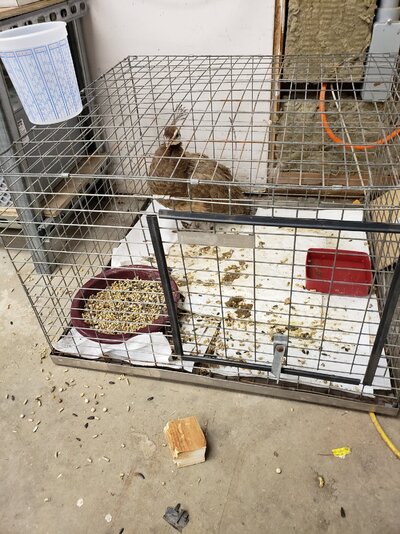Earlier this week I brought this little lady into our "special care unit" she was not visibly sick or showing symptoms but she had been treated for gapeworm and it took a toll. I picked her up and discovered she was very thin so i brought her in to keep her warm and fatten her back up with healthy foods.
This is why it is so important to be engaged with your birds and to interact with them to guage health. Had i not picked up this bird she would likely have died despite not being visibly sick.
There is a pervasive attitude acrossed animal hobbies that people think because an animal is moving around it is not sick which is not at all true. These are the same individuals who claim despite bad practices that their birds are "thriving" or "fine". Health is a spectrum and in birds by the time they look sick they're probably beyond saving.
This is why it is so important to be engaged with your birds and to interact with them to guage health. Had i not picked up this bird she would likely have died despite not being visibly sick.
There is a pervasive attitude acrossed animal hobbies that people think because an animal is moving around it is not sick which is not at all true. These are the same individuals who claim despite bad practices that their birds are "thriving" or "fine". Health is a spectrum and in birds by the time they look sick they're probably beyond saving.





